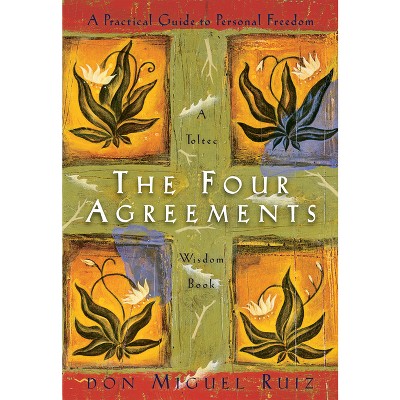The Translation of Films, 1900-1950 - (Proceedings of the British Academy) by Carol O'Sullivan & Jean-François Cornu (Hardcover)

About this item
Highlights
- This rich collection of articles and essays by film historians, translation scholars, archivists, and curators presents film translation history as an exciting and timely area of research.
- About the Author: Carol O'Sullivan was awarded a PhD in Modern and Medieval Languages by the University of Cambridge in 2002.
- 300 Pages
- Performing Arts, Film
- Series Name: Proceedings of the British Academy
Description
About the Book
Ground-breaking in its study of translation of subtitling and dubbing of silent films, The Translation of Films, 1900-1950 shows how silent films went through a complicated editing process for international distribution. It is also a major step forward in research on translation during the transition to sound in the late 1920s and early 1930s.
Book Synopsis
This rich collection of articles and essays by film historians, translation scholars, archivists, and curators presents film translation history as an exciting and timely area of research. It builds on the last twenty years of research into the history of dubbing and subtitling, but goes further, by showing how subtitling, dubbing, and other forms of audiovisual translation developed over the first fifty years of the twentieth century.
This is the first book-length study, in any language, of the international history of audiovisual translation which includes silent cinema. Its scope covers national contexts both within Europe and beyond. It shows how audiovisual translation practices were closely tied to their commercial, technological and industrial contexts. The Translation of Films, 1900-1950 draws extensively on archival sources and expertise. In doing so it revisits and challenges some of the established narratives around film languages and the coming of sound. For instance, the volume shows how silent films, far from being straightforward to translate, went through a complex process of editing for international distribution. It also closely tracks the ferment of experiments in film translation during the transition to sound from 1927 to 1934 and later, as markets adjusted to the demands of synchronised film. The Translation of Films, 1900-1950 argues for a broader understanding of film translation: far from being limited to language transfer, it encompasses editing, localisation, censorship, paratextual framing, and other factors. It advocates for film translation to be considered as a crucial contribution not only to the worldwide circulation of films, but also to the art of cinema.Review Quotes
The Translation of Films, 1900-1950 is a truly remarkable achievement, illustrating the potential of archival research in AVT (audiovisual translation)studies. Aiming "to set the agenda for research on the history of film translation" (11), this ground-breaking book makes a significant contribution to both AVT and Film Studies, opening up truly multidisciplinary perspectives and marking a radical change in our understanding of film translation history.
-- "Serenella Zanotti, Journal of Specialised Translation"The collection's comparative spirit of challenging and probing, of stimulating the contact zone between disciplines ... cover[s] old ground in new ways: as essays from archive and academy shed light on each other's disciplinary emphases, early film translation in all its incarnations is revealed at once to be an engine of international circulation, a site of artistic experimentation, and an inextricable part of the story of cinema ... proves that translated films ... are eminently worthy of preservation and study ... The Translation of Films' accumulative potential to change how films are preserved, distributed, studied, and seen, such that the archaeological puzzle of film translation history, with all its missing pieces, may start to look more complete.
-- "Daniella Schütze, Oxford Comparative Criticism & Translation"Across all chapters presented in this collection, the value and importance of archive-based research is consistently brought to the fore, and several chapters present valuable models for approaching primary materials relating to audiovisual translation... While this volume is not the first to cover this territory, it may well prove to be a focusing point, and in some senses a leveller, for future archive-driven studies into the topic.-- "Peter Walsh, Journal of Film Preservation"
O'Sullivan and Cornu's book is highly recommended to anyone with an interest in film translation. In fact, it should be read not only by film and audiovisual translation historians, but also by practitioners. While today's film translation techniques may be a far cry from what the book describes, understanding the origins provides immense help in appreciating the current constraints and guidelines of good practice.-- "Lukasz Bogucki, Target"
"The Translation of Films, 1900-1950 is a truly remarkable achievement, illustrating the potential of archival research in AVT (audiovisual translation)studies. Aiming "to set the agenda for research on the history of film translation" (11), this ground-breaking book makes a significant contribution to both AVT and Film Studies, opening up truly multidisciplinary perspectives and marking a radical change in our understanding of film translation history." -- Serenella Zanotti, Journal of Specialised Translation"Across all chapters presented in this collection, the value and importance of archive-based research is consistently brought to the fore, and several chapters present valuable models for approaching primary materials relating to audiovisual translation... While this volume is not the first to cover this territory, it may well prove to be a focusing point, and in some senses a leveller, for future archive-driven studies into the topic." -- Peter Walsh, Journal of Film Preservation "The collection's comparative spirit of challenging and probing, of stimulating the contact zone between disciplines ... cover[s] old ground in new ways: as essays from archive and academy shed light on each other's disciplinary emphases, early film translation in all its incarnations is revealed at once to be an engine of international circulation, a site of artistic experimentation, and an inextricable part of the story of cinema ... proves that translated films ... are eminently worthy of preservation and study ... The Translation of Films' accumulative potential to change how films are preserved, distributed, studied, and seen, such that the archaeological puzzle of film translation history, with all its missing pieces, may start to look more complete." -- Daniella Schütze, Oxford Comparative Criticism & Translation"O'Sullivan and Cornu's book is highly recommended to anyone with an interest in film translation. In fact, it should be read not only by film and audiovisual translation historians, but also by practitioners. While today's film translation techniques may be a far cry from what the book describes, understanding the origins provides immense help in appreciating the current constraints and guidelines of good practice." -- Lukasz Bogucki, Target
About the Author
Carol O'Sullivan was awarded a PhD in Modern and Medieval Languages by the University of Cambridge in 2002. Prior to taking up a post at the University of Bristol in 2013, she taught at the Universities of East Anglia and Portsmouth. She has published articles and book chapters on audiovisual translation, multimodality, translation history, and literary translation, and is the author of Translating Popular Film (2011). Her current project is on the history of subtitling in English-speaking territories. She is a past Board member of the European Society for Translation Studies, and is currently Editor-in-Chief of the journal Translation Studies.
Jean-François Cornu is a professional translator specialising in subtitling and the translation from English into French of books on cinema and art. A former Senior Lecturer at the University of Rennes-2, France, he is also an independent film researcher focusing on the history and practice of film translation, and the work of Alfred Hitchcock. In 2014, he published Le doublage et le sous-titrage: histoire esthétique (Dubbing and subtitling: history and aesthetics). He is a member of ATAA, the French association of audiovisual translators, and co-founder of its online journal L'Écran traduit.Shipping details
Return details
Trending Non-Fiction






Discover more options





